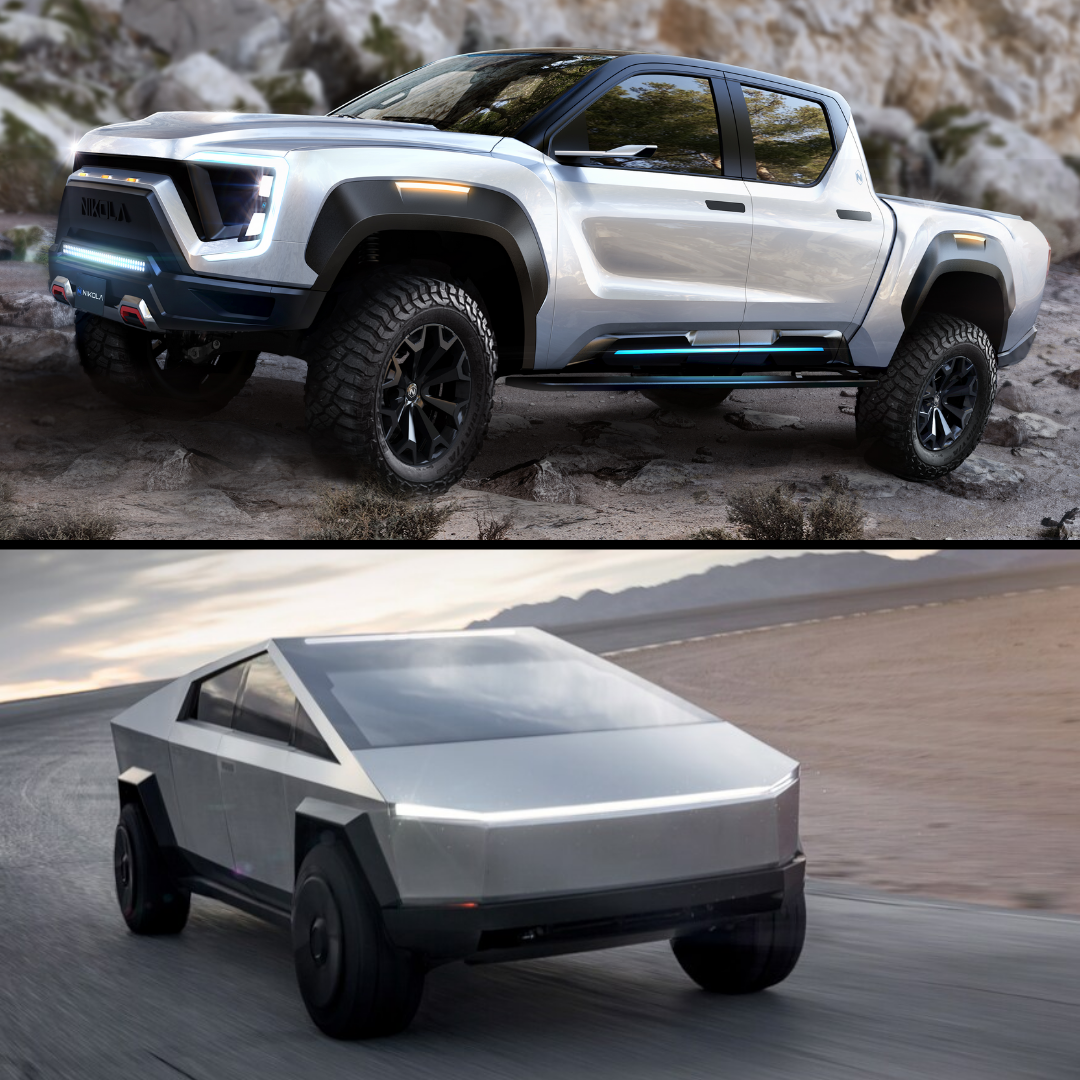You may not have heard about Nikola Motor Company since 2016 when they announced their hydrogen Nikola One truck or 2018 when they sued Tesla over their Semi. They’re taking a different approach and embracing not only being a motor company, but also an energy company. They haven’t delivered a truck yet, just went public but are valued well over a Billion and they expect to launch its battery-electric truck for the urban market later next year following with their long-haul hydrogen fuel-cell trucks and want the industry to know that they are here to last. How they plan to do that is interesting and can be really impactful from a decarbonization of the trucking industry standpoint. To quote CEO Trevor Milton – they are more interested in building and owning hydrogen refueling stations across the US & Europe than selling the most HEV trucks.
Which gets us thinking…do we go and get a Cybertruck or a Nikola Badger and which one will be better???
From a spec’s standpoint the Nikola Badger has claimed a whopping 600 Miles on a full tank + battery and has gotten one of our editors a little bit too excited about turning in their old Tacoma…
At the same time the cybertruck is proving to be one of the most hyped up upcoming vehicles, but, our hunch is that you won’t see it for at least 3 years on the road.
But we can’t just leave all the fun to Nikola & Tesla 😏
The HEV space by itself is heating up and we have a hunch it is truly the future for vehicles that require a massive amount of energy & power for a long period of time. Trucks, Airplanes, Cruise ships and other “big rig” type vehicles will likely convert to HEV over the next decade but it is going to be dependent on the amount of refueling stations & production capacity we can bring to the market to enable such a world. Going full Electric or Hydrogen Electric promises a global transportation network being entirely decarbonized…
As prices drop & the tools become more commodity I am sure we will see more and more people being able to make the move to cleaner and honestly a higher performance vehicle option.
It starts with more manufacturers and companies entering the market. Like Hyzon Motors – which is claiming the title to become the first US manufacturer to produce PEM fuel cells. Introducing Busses and Trucks in late 2020, and expanding to Vans and other vehicles in 2021.They’re offering operating leases for commercial customers (they have 2,000 heavy vehicle deployments planned over the next three years), and are arranging partners for fueling stations – maybe we will see a collaboration between Hyzon & Nikola in the coming years.
About The Author

Swarnav has over 10 years of experience in the energy & climate tech space, holds 2 patents and is active in the tech, climate and media industries. He specializes in Product/Product Innovation as well as Go-To-Market and Growth Strategy.
By training he’s a Materials Engineer with a background in research from his time at Georgia Tech and University of Illinois (UIUC).
He founded TouchLight a utility backed energy company focused on developing IP for utilities and startups pushing electrification forward. He also serves as the appointed Chairman for the Town of Yorktown’s Climate Smart Communities Task Force, where he helps with drafting legislation and enabling sustainability efforts within the town.
Concurrently, Swarnav founded The Impact to help investors, emerging founders and driven climate enthusiasts discover and identify new climate-tech startups, technologies and opportunities before they hit the traditional media sources.

